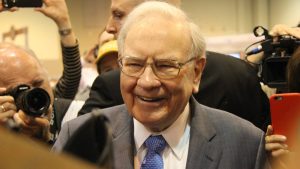Up 250 times since 2015, but are Nvidia shares ‘cheap’?


Nvidia (NASDAQ: NVDA) shares might just be the hottest property worldwide. They’re up 250 times in the last decade. A £4,000 stake in 2015 is worth £1m today.
The firm’s high-tech chips are crucial in powering a revolution in technology that may well be remembered as being as monumental as the internet, the internal combustion engine, the printing press and the wheel all rolled into one.
Heck, if even a few of the claims being made about artificial intelligence come true, then future historians might write about AI as being more revolutionary than when cavemen started flicking bits of flint together.
Perhaps the oddest thing about the shares in this company on the frontier of electronic intelligence might be that they’re still ‘cheap’ from one angle.
Are they cheap?
The metric I’m thinking about here is the forward price-to-earnings ratio (P/E). In short, it’s the price divided by profits over the next 12 months.
Nvidia has a forward P/E of 28. One way to think about it is that however much my stake in the company is, it takes 28 years to make the profit back. That number is on the higher end. Most would call that an expensive share price. The FTSE 100 average is only 14.
But high P/E ratios are par for the course with high-growth companies. If a company grows, and earnings go up? Well, a higher price tag is justified.
So what happens if we compare Nvidia to other high-growth companies? Well, the shares donât look quite as pricey.
British tabletop games seller Games Workshop has a forward P/E of 30. Housebuilder Barratt Redrow is up at 45! Online shop Amazon comes in at 33, Costco at 51 and Tesla at 172!
Do these companies have better prospects than the dominant supplier of next-generation AI chips? I don’t think so.
With all that in mind, a price-to-earnings ratio of 28 starts to look quite attractive.
A false dawn?
What’s the catch then? Well, AI is in a boom period, for one. After ChatGPT took the world by storm, a host of tech giants made big orders to get in on the action. It’s why so many new large language models like Gemini, Grok or Claude sprang onto the market.
While Nvidia doesnât reveal the names, around half of its revenue comes from only four customers. If and when this customer base has filled up their stockpile of chips, it’s very possible that earnings could slow.
A second pitfall might be AI not delivering on its promises. It’s still early days for the technology. No one can definitively say whether we’re witnessing the invention of fire or just a false dawn.
The current forms of AI, like those language models, are very impressive, but they may be the limit of what is achievable with current technology. If so, then Nvidiaâs bottom line will likely take a beating.
Personally, I think it’s too soon for anyone to tell. But the possibility that AI lives up to the claims mean that this is a stock investors should consider, particularly with Nvidia shares looking, on some levels at least, rather ‘cheap’.
The post Up 250 times since 2015, but are Nvidia shares ‘cheap’? appeared first on The Motley Fool UK.
AI Revolution Awaits: Uncover Top Stock Picks for Massive Potential Gains!
Buckle up because we’re about to dive headfirst into the electrifying world of AI.
Imagine this: you make a single savvy investment in some cutting-edge technology, then kick back and watch as it revolutionises entire industries and potentially even lines your pockets.
If the mere thought of riding this AI wave excites you and the prospect of massive potential returns gets your pulse racing, then you’ve got to check out this Motley Fool Share Advisor report – ‘AI Front Runners: 3 Surprising Stocks Riding The AI Wave’!
And here’s the kicker – we’re giving you an exclusive peek at ONE of these top AI stock picks, absolutely free! Howâs that for a bit of brilliance?
More reading
- Can Nvidia stock hit $200 in 2025?
- Should I invest in the S&P 500 or the FTSE 100 right now?
- I asked ChatGPT for the best 3 S&P 500 stocks and it said this (again)â¦
- Nvidia stock looks cheap⦠but are its chip peers better value?
- Up 40% in weeks, am I too late to buy Nvidia stock?
John Mackey, former CEO of Whole Foods Market, an Amazon subsidiary, is a member of The Motley Foolâs board of directors. John Fieldsend has positions in Games Workshop Group Plc and Tesla. The Motley Fool UK has recommended Amazon, Barratt Redrow, Games Workshop Group Plc, Nvidia, and Tesla. Views expressed on the companies mentioned in this article are those of the writer and therefore may differ from the official recommendations we make in our subscription services such as Share Advisor, Hidden Winners and Pro. Here at The Motley Fool we believe that considering a diverse range of insights makes us better investors.





